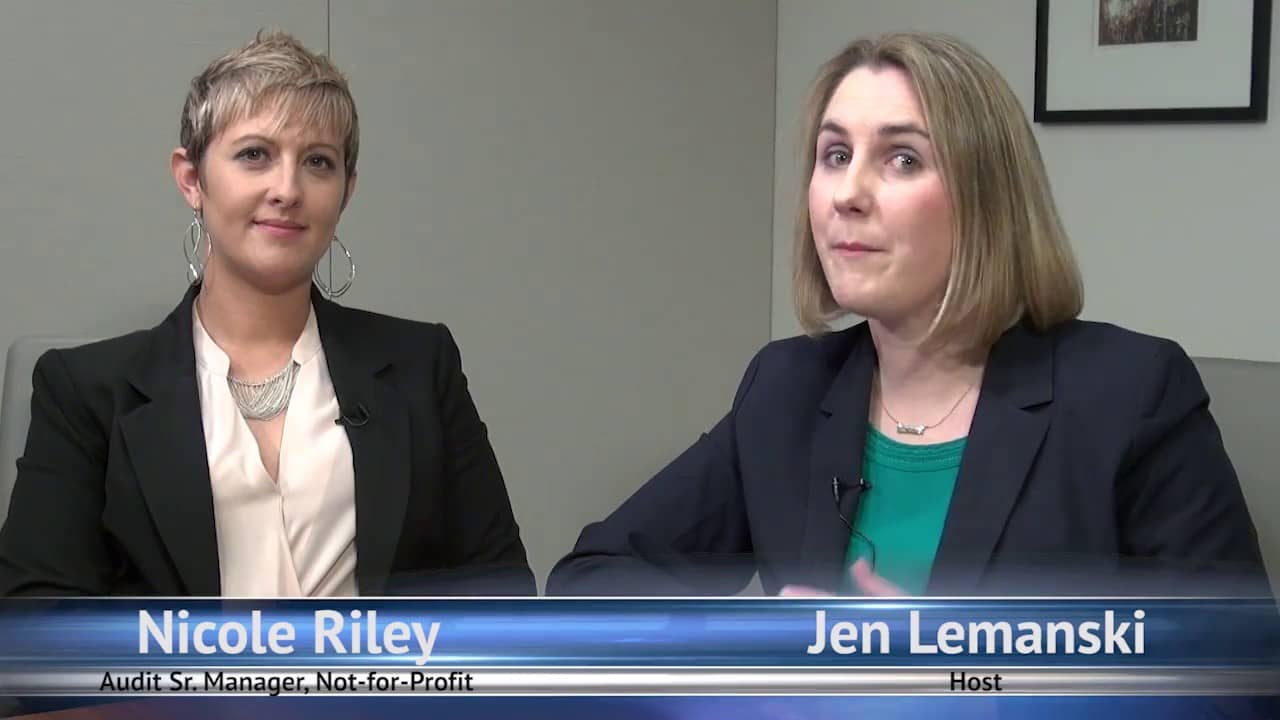Jen: This is the PKF Texas Entrepreneur’s Playbook. I’m Jen Lemanski, this week’s guest host, and I’m back again with Nicole Riley, one of our Audit Senior Managers on our not-for-profit team; welcome back to the Playbook Nicole.
Nicole: Thanks, glad to be here.
Jen: Now I’ve heard you talk about Governance procedures; what does that all entail? What do people need to know if they’re nonprofit for Governance procedures?
Nicole: Really when we talk about Governance we’re talking about the processes and procedures in place with the Board of Directors. Just like an organization needs to have good processes and procedures to make sure their operations flow and work well, the board needs to have processes and procedures in place to make sure that it governs properly and has great oversight over the organization so the organization can accomplish its mission.
Jen: So when you go in and you advise a not for profit and you’re talking to them about these things what do you advise that the board pay attention to?
Nicole: The 5 main things I would recommend first for the board to look at, the first thing is for the board to have an orientation and training program. When you bring a new board member on you want to make sure that you get them up to speed as fast as possible so they can be a contributing member and you also don’t want to lose what the board members that are leaving know.
Jen: Because they’re intellectual capital and that kind of thing.
Nicole: Right, and as well you want the board members to get some annual training where they learn new regulations, new laws and just kind of touch base to make sure that they’re staying up to date on what’s going on with nonprofits. The second thing I would say is boards have to keep minutes. Transparency is so important these days with nonprofits, it really plays into their perception in the public, so keeping minutes of the board meetings and the committee meetings help to make sure that everything’s documented and that they’re able to have total transparency if anybody wants to know what’s going on.
Jen: So they should post those on the website probably or somewhere in a public place?
Nicole: That would be up to the organization whether they think that is necessary but somebody may ask for them and they want to have them available. The third item I would recommend is having a conflict of interest policy and that the board review that annually; which means that if somebody has a brother that has a construction company and the organization is going to go after a bid because they’re going to build a building you want to make sure that the board members are aware of that as they’re evaluating those bids to make sure it’s fair and everybody keeps the organization’s best interest at heart.
Jen: So have a good RFP kind of process?
Nicole: Right. And then fourth I would say your Executive Director needs to have an annual performance evaluation. They are head of the organization and just like everybody else below them they need to know how they’re doing. And as well their compensation needs to be evaluated and then documented how the board got there and whether or not it needs to be competitive but not excessive.
Jen: And I think you said five think, what’s the last one?
Nicole: The last one would be I recommend the board review the 990 form before it’s filed every year. It’s filed with the IRS but it’s also available to the public so it’s important the board members know what’s in there and that it’s complete and accurate.
Jen: Sounds good. Well, we’ll get you back to talk about some more of this stuff in the future.
Nicole: Thank you.
Jen: To learn more about how we can help your not for profit visit PKFTexas.com/notforprofit/. This has been another Thought Leader production brought to you by PKF Texas Entrepreneur’s Playbook.

